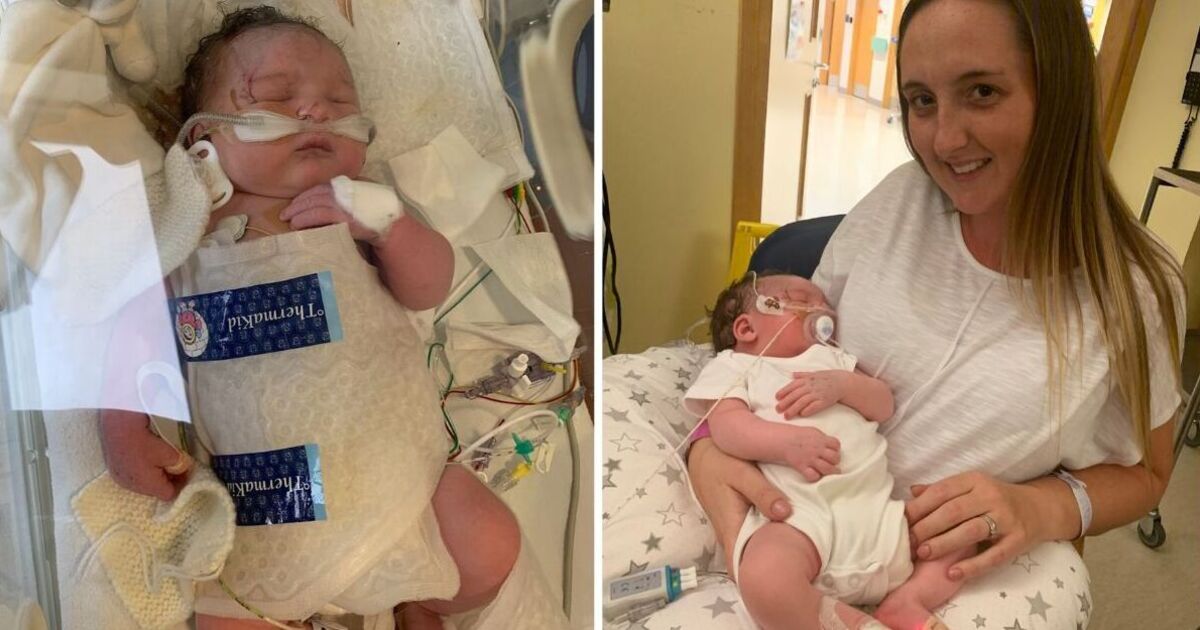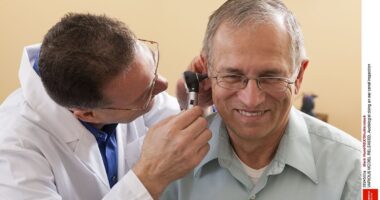Every time Jessica Pinder looks at her son, she is reminded of his terrifying arrival into the world. Left with a permanent dent above his left eyebrow and a scar on his nose, Jax, now four, almost lost his life before it had even begun.
For Jessica, the marks evoke painful memories of what should have been the happiest day of her life. She is just one of thousands of women who will be waiting eagerly to read the report of the ongoing All-Party Parliamentary Group (APPG) Birth Trauman Inquiry, which is due to be released imminently.
“One of the hardest things about birth trauma is the knowledge that it robs you of any positive memories of the day your child was born,” says Jessica, 29, in Ramsgate, Kent.
When Jessica, a pastoral assistant, went into labour in late September 2019, she hoped for a water birth, with husband Josh, 31, beside her. “My pregnancy had been straightforward, and I felt excited about meeting my baby,” she says. “A growth scan in the final weeks revealed he was ‘on the big side’ but no plans were made to induce me, or offer me a C-section, so my labour started naturally a week before my due date.”
But after Jessica was admitted, her “nightmare” began: “My blood pressure was high, so I wasn’t able to use the birthing pool. I laboured for several hours using gas and air, but the pain was horrendous.
“When I was fully dilated, I was told to push but nothing was happening,” she remembers. “By then I’d been having contractions for over 24 hours, and was exhausted.”
After an epidural, Jessica was once again told to push, the room now filled both with midwives and several consultants. “I had no idea what was going on, neither did my husband.”
Jessica was taken to theatre. “It was like a horror film,” she says. “There were three goes at using a vacuum cup before I was given an episiotomy [a cut in the tissue between the vagina and the anus to create more space] and doctors attempted a forceps delivery.”
The first two attempts failed, then with the third the baby’s head was born, but the body would not deliver. One or both of Jax’s shoulders had become stuck, which occurs in one in 150 vaginal births. “I remember two doctors pulling at the forceps, sweat pouring off them, while a midwife had her hand inside me trying to dislodge the shoulder, another pushing hard on my stomach,” says Jessica.
It took six minutes for Jax’s shoulders to be freed, and he was born not breathing, after being deprived of oxygen. “I had a quick glimpse of him, pale and floppy, before he was rushed to theatre, where doctors performed CPR for around 20 minutes. I truly believed he was going to die before he took his first breath or I’d held him.”
Jax, who weighed 8lb 15oz, suffered several seizures and was transferred to Kings College Hospital London for specialist care. “His incubator was wheeled to my bedside so I could see him before he left. Covered in tubes, his little body swollen, I was horrified to see cuts and bruising on his face from the forceps, as well as the dents he still has to this day. He looked battered,” says Jessica.
The pair were separated for six days before Jessica was discharged and could travel to Kings. “Even when I was finally allowed to hold Jax I felt so traumatised and scared we were going to lose him.”
Jax came home 10 days after his birth, but the aftershocks continued. “He was diagnosed with Erb’s Palsy, muscle weakness in the arm and shoulder as a result of nerve damage when he was being born, and required physio,” says Jessica.
Within weeks Jessica was diagnosed with anxiety and depression, and when Jax was 18 months, she was also diagnosed with PTSD. “I suffered from flashbacks, struggled to sleep and was hyper vigilant, convinced Jax was going to die. I was given one session of NHS therapy, which I didn’t find helpful, and we couldn’t afford private counselling,” she says.
When, in 2021, Jessica discovered she was pregnant again, she considered a termination. “I really believed I couldn’t do it again, but I didn’t want Jax to be an only child, or for what had happened to define our future.
“I had support from an IAPT (Improving Access to Psychological Therapies) service in Kent, which I self-referred to. They helped me write a care plan for my midwives.
“Our daughter Jacie was born in May 2022 by planned C-section at a different hospital. It was a totally different experience, so calm and positive. I felt happy but guilty I hadn’t had that amazing moment with Jax.”
Jessica now supports other women through the charity The Birth Trauma Association. “There’s stigma around being anything less than grateful and happy after you’ve had a baby. That silences women who’ve had traumatic experiences. I’m so grateful to be a mother, but like the physical scars on my son’s face, my emotional ones will always be with me.”
For advice and support go to birthtraumaassociation.org










